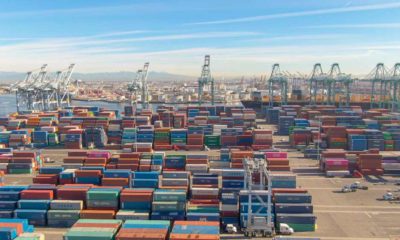Business
Trump’s Threats To Shut Out Cuba Are Bad For Business
After 50 years of power and another decade pulling strings in Cuba, Fidel Castro is finally dead. His younger brother Raul Castro, who has been in power since Fidel handed him control in 2008, has made some incremental progress as President. Now, with Fidel out of the picture, President-Elect Donald Trump is demanding the younger Castro make immediate changes or else. Would Trump really shut the door on relations with Cuba? Does the U.S. economy actually benefit from that relationship?
Are Trump's Threats Serious, Or Are They Just For Bravado?
Barack Obama made a historic effort to build a relationship between the U.S. and Cuba when he visited the country in March of 2016. Since then, the U.S. has eased its embargo on Cuba, while Cuba has in turn opened its borders to Americans – and American businesses. Following Castro’s death, Donald Trump tweeted if “Cuba is unwilling to make a better deal for the Cuban people, the Cuban/American people and the US as a whole, I will terminate deal”. Is that an empty threat, or is Trump really looking out for the American people here?
Since Raul Castro took over as President of Cuba, he’s instituted changes. And while those changes have not been as sweeping or broad as many Cubans wished for, many were still significant. For example, with Cuba being a socialist state, private individuals were never allowed to own businesses. Today, that’s no longer the case, as citizens can now apply for permits to own their own businesses. While it may not be a free market, it’s still a big leap for the island. Raul Castro also loosened travel restrictions and foreign investment, and most importantly, set term limits on presidential terms – starting with himself being required to step down in 2018. With one year left on his term, the younger Castro has a real opportunity to push for change now that Fidel is no longer around to limit his ability to govern. Perhaps Trump’s tweet is meant to incentivize Castro, but in reality, Trump would have a hard time undoing Obama’s efforts.
American businesses already have a vested interest in Cuba. And since Trump constantly talks about increasing jobs for Americans, shutting down relations with Cuba hurts that claim. Cuba would instantly become a major trade partner for the U.S. out of sheer proximity. Exports to Cuba would become a huge market. On top of that, Cuba makes a very attractive tourism destination. While that may help Cuba quite a bit, American companies would also benefit. Whether it’s flights or cruises, Americans would utilize American transportation companies. In fact, JetBlue, an American airline, just flew its first commercial flight to Cuba. Airbnb already has more than two thousand listings in Cuba. Hotels, rental car agencies, eateries, and so many other companies will flock to Cuba, creating jobs for Cubans and Americans, alike.
Watch this video from CNN to know more about Trump's thoughts on Cuba:
Trump may threaten Cuba via Twitter, but American businesses benefit too much for the President-Elect to shut things down. In reality, Raul Castro will embrace the opportunity to create a meaningful, lasting legacy for himself among the Cuban people. Look for the thaw created by Obama and Raul Castro to go into a full melt and for Cuba and the U.S. to enjoy a warm, lasting relationship benefiting both countries.
Stripe’s Valuation Has Gone Up, But Why? Check the news here!
Follow us on Facebook and Twitter for more news updates!
The statements, views, and opinions of any article, contribution, editorial, or advertisement in this publication are not necessarily those of The Capitalist or its editorial staff, and are not considered an endorsement, sponsorship, or recommendation of any referenced product, service, issuer, or groups of issuers.
This publication provides general information about certain subjects, and should not be construed or taken as advice (legal, financial, investment, tax, or otherwise). Do not construe or take any information in this publication as a solicitation, offer, opinion, or recommendation to buy or sell any securities, bonds, or other financial instruments or to provide any legal, financial, investment, tax, or other advice or service about the suitability or profitability of any financial instruments or investments.
The Capitalist disclaims any liability for the accuracy of or your reliance on any statements, views, opinions, or information in this publication.

















